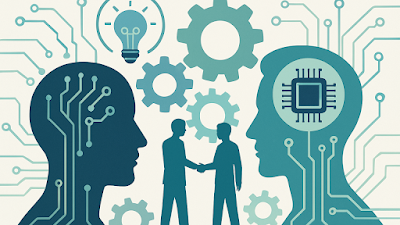The New Acquisition Playbook: IP and Talent Over Companies
The tech landscape is constantly evolving, and with it, the strategies for growth and innovation. Recent events, particularly the Windsurf acquisition and the Character.ai deal with Google, highlight a burgeoning trend: large corporations are increasingly opting to acquire intellectual property (IP) and founding teams rather than entire companies. This shift signals a more surgical approach to M&A, focusing on specific assets and expertise that can accelerate internal development and maintain agility.
The Windsurf Saga: A Case Study in Strategic Asset Acquisition
The Windsurf acquisition by Cognition is a prime example of this new playbook in action. Initially, OpenAI was reportedly in talks to acquire Windsurf, an AI coding startup, for a hefty $3 billion [9]. However, the deal ultimately fell through, and in a dramatic turn of events, Google swooped in to poach Windsurf's CEO and co-founders [8]. Following this, Cognition announced its acquisition of Windsurf, specifically stating that the deal includes Windsurf's IP, product, trademark, and brand [4]. This sequence of events underscores a critical point: the value was not solely in the company as a whole, but in its core intellectual assets and the talent that created them. By acquiring the IP and key personnel, Cognition gains access to Windsurf's innovative technology and expertise without the complexities and overheads often associated with a full company acquisition.
Character.ai and Google: A "Reverse Acquihire" in Action
The Character.ai deal with Google further solidifies this trend, often referred to as a "reverse acquihire." Google invested $2.7 billion in Character.ai, a personalized chatbot developer, not by outright acquiring the company, but by bringing its AI pioneers back into the fold [1]. This agreement included Google buying out previous investors, acquiring some of the talent at Character.ai (including its founders), and a license to the company's technology [2, 4, 5]. This strategic move allowed Google to gain access to Character.ai's cutting-edge AI models and expertise without the full integration of an acquisition, which can often be cumbersome and disruptive. It also allowed Character.ai to maintain some independence while benefiting from Google's resources and reach.
The Emerging Trend: Why IP and Talent?
This trend of acquiring IP and founding members instead of entire companies is gaining traction for several reasons:
1.Agility and Integration: Full acquisitions can be slow, complex, and fraught with integration challenges. By focusing on IP and key talent, larger companies can more quickly integrate new technologies and expertise into their existing structures without disrupting ongoing operations.
2.Cost-Effectiveness: Acquiring specific assets and individuals can be significantly less expensive than buying an entire company, especially if the target company has a large workforce, diverse product lines, or significant liabilities.
3.Focus on Core Competencies: This approach allows acquiring companies to target precisely the innovations and skills they need to enhance their core offerings, rather than inheriting extraneous business units.
4.Talent Retention: By bringing founding members and key engineers directly into their teams, companies can better retain the institutional knowledge and creative drive that fueled the acquired IP.
The Future of M&A
The Windsurf and Character.ai deals are not isolated incidents but rather harbingers of a new era in mergers and acquisitions. As technology continues to advance at a rapid pace, and the demand for specialized AI and software development talent intensifies, we can expect to see more of these targeted acquisitions. This strategy allows tech behemoths to stay at the forefront of innovation by selectively absorbing the most valuable components of promising startups, fostering a dynamic environment where groundbreaking ideas can be quickly scaled and integrated into broader ecosystems.
This evolving acquisition model benefits both sides: startups can see their innovations adopted by larger platforms while their founders and key employees gain access to unparalleled resources, and large corporations can efficiently acquire the specific intellectual property and human capital needed to maintain their competitive edge. It's a win-win that is reshaping the future of tech growth.
References:
[4] https://x.com/cognition_labs/status/1944819486538023138
[6] https://em360tech.com/tech-articles/character-ai-scraps-building-llms-after-google-deal
[7] https://www.axios.com/2024/08/05/google-characterai-venture-capital
[8] https://www.saastr.com/did-windsurf-sell-too-cheap-the-wild-72-hour-saga-and-ai-coding-valuations/
